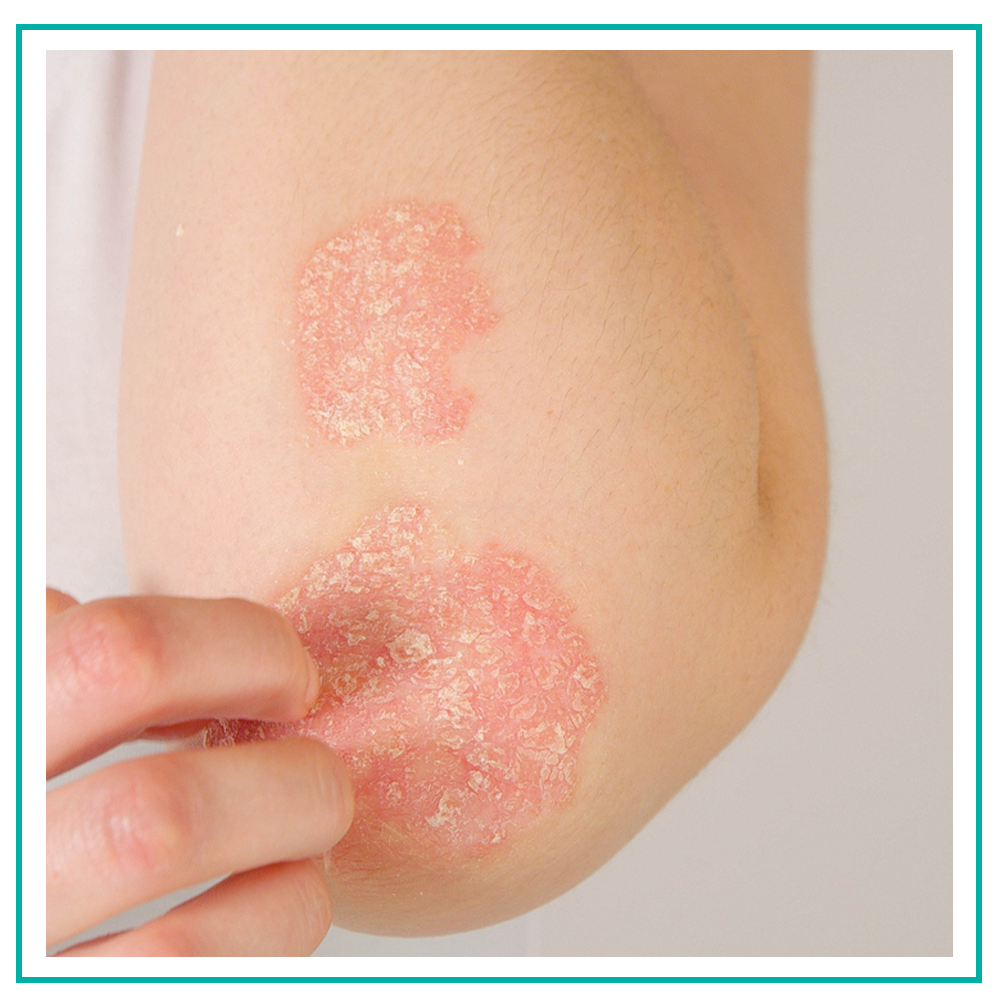About Psoriasis
Psoriasis is a common inflammatory skin condition that causes skin cells to mature quicker than normal but shed at a normal rate. This causes a build-up of skin cells that form lesions. The lesions are usually red or dark with a thick scale, and they are sometimes itchy. Psoriasis can be “set off” by stress, medications, infection or weather changes, for example.
Where does Psoriasis occur?
Psoriasis can affect any area of the body but is most commonly found on the:
- Elbows
- Knees
- Scalp
- Buttocks
- Skin folds
- Nails
Psoriasis can also affect the joints.
There is a genetic link: If one parent has psoriasis, offspring have a 10% chance of developing it, 50% if both parents are affected. However, not everyone with psoriasis has a family member with psoriasis.
Caucasians are affected more than African Americans. It’s uncommon in Asians and Native Americans.
Men and women are equally at risk with 75% of cases developing before age 40.
Psoriasis tends to be a life-long condition. In addition to seeing your dermatologist for a treatment regimen individualized for you, the following tips can help you manage your psoriasis and prevent flare-ups.
- Maintain a healthy lifestyle. Eat a healthy diet, get adequate, and manage stress.
- Avoid picking at or scratching lesions.
- Avoid harsh soaps and bathe with lukewarm – no hot – water.
- Apply a moisturizer regularly.
- Learn what triggers your psoriasis and avoid those triggers
There are many treatment options your doctor/PA may prescribe, both alone or in combination. Your options will depend on the location and severity of the disease, your prior response to treatment, the treatment’s impact on your quality of life and your age/gender/medical history.


